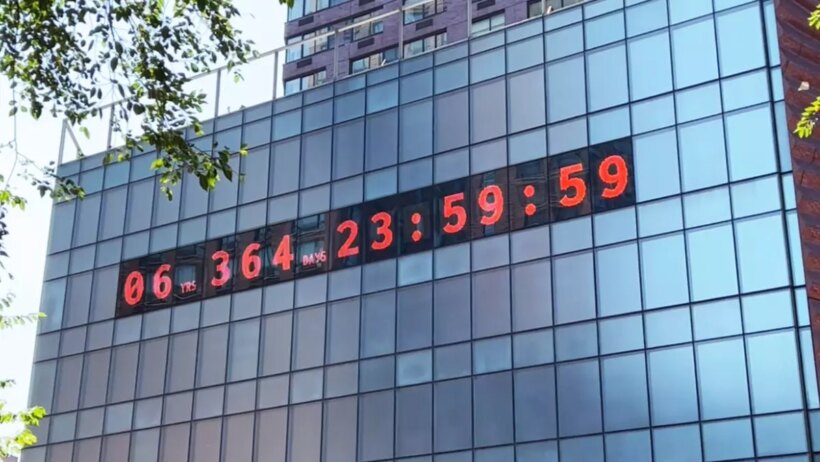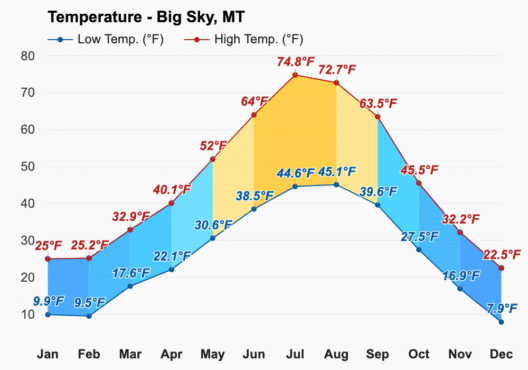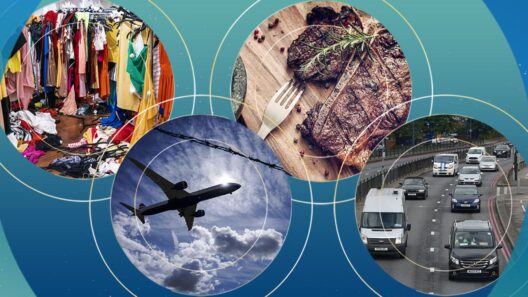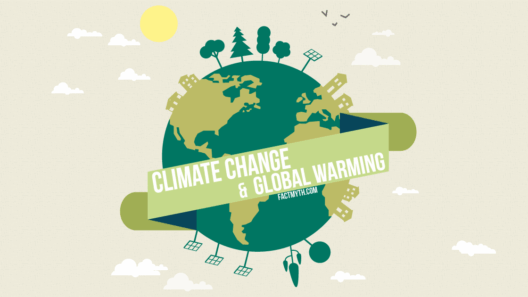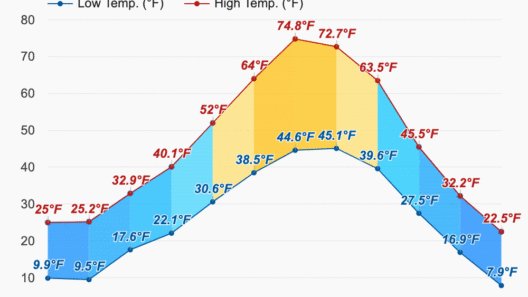As the hands of the proverbial clock inch perilously close to midnight, the climate crisis looms larger than ever, casting a pall over the planet’s future. The so-called Climate Clock—an ominous symbol of the time remaining to avert catastrophic changes—tick-tocks relentlessly, a steady drumbeat echoing the urgency of the moment. But what does this ticking signify? Will we perish when the climate clock strikes its fateful hour? Or is there a more nuanced understanding of the consequences that awaits us? This inquiry demands deep contemplation, as it intertwines life, legacy, and the very fabric of existence on Earth.
The metaphor of a ticking clock is a powerful one. It evokes images of an impending deadline, a finality that instills both fear and motivation. The challenge is not merely the passage of time, but what we choose to do—or fail to do—during that time. The gravity of our predicament grows heavier with each cycle of the second hand. It’s not an abstract notion; it is the reality that ecosystems are unraveling, species are being extinguished, and human societies are beginning to feel the tremors of climate devastation. From altering weather patterns and rising sea levels to more frequent and severe natural disasters, the empirical evidence is undeniable. And yet, society remains ensnared in a quagmire of inertia, lulled by a false sense of security.
Philosophically, one could argue that our most potent enemy is not the climate clock itself, but rather the complacency that shadows our awareness of its ticking. As environmental degradation accelerates, the locus of blame extends beyond the negligence of leaders or corporations. It rests squarely on each of us, as stewards of this planet and agents of change. The clock serves as a stark reminder—a clarion call, if you will— urging us to transition from apathy to action. Nevertheless, the question remains: how will we respond when the inevitable consequences unfurl?
The potential consequences of inaction are stark. As temperatures rise, so too will the global upheavals that will redefine human existence as we know it. It’s a horrifying vision: food and water scarcity, migration crises, and conflict over dwindling resources. Picture a world where climate refugees flood borders, seeking solace in unfamiliar territories, only to be met with hostility. Consider the implications of famines stemming from crop failures resulting from extreme droughts or unpredictable floods. The fragile web of civilization hangs by a thread, and one must confront an unsettling truth: the clock’s deadline is not merely a point on the calendar; it is an inexorable march toward societal collapse.
However, what must also be acknowledged is the opportunity that arises from crisis. The climate clock’s ominous tick exposes vulnerabilities, yes, but it also shines a light on our capacity for ingenuity. It is a call to arms—a chance for humanity to galvanize collective efforts toward developing sustainable solutions that transcend traditional practices. Innovation in renewable energy, for instance, offers a pathway toward a future not encumbered by the fossil-fuel fetters of the past. Imagine a world powered by the sun and the wind, where technological advancements reshape our interaction with nature rather than exploit it.
Moreover, this environmental reckoning necessitates a democratization of the conversation surrounding climate action. Historically, marginalized communities have disproportionately borne the brunt of natural disasters, yet their voices remain eclipsed in policy dialogues. The ticking clock demands inclusivity, ensuring that all communities—not just the privileged—have a stake in shaping a resilient future. It is through the lens of equity and justice that we can forge a more sustainable, humane world.
But let us not fool ourselves. The reality of climate change is not merely an aberration; it is a manifestation of deeply entrenched systemic issues. The clock’s countdown is intertwined with issues of capitalism, exploitation, and social inequities. To understand the fight against the climate crisis, one must grapple with the notion that the very systems sustaining our lifestyles may require fundamental transformation. We must question paradigms that prioritize profits over people, short-term gains over long-term sustainability.
As the clock ticks on, the crux of the matter crystallizes: we are faced with a multifaceted struggle that requires multifarious solutions. The reimagining of our societal structures is essential to transcend the limitations imposed by outdated ideologies. Herein lies the unique beauty of this moment—a chance to not only rectify past wrongs but also to shape a new narrative for future generations. To answer the looming question: will we die when the climate clock runs out? The answer is dependent on our choices; if we continue on the prevailing path of inertia, the ramifications will be dire.
In conclusion, the Climate Clock is not merely a countdown to destruction but rather a compelling metaphor for the choices we face. It compels us to move beyond fear and despair, urging us to innovate, engage, and transform our society. The intersections of sustainability, justice, and equity are where our salvation lies. We are at a crossroads; thus, the time for complacency has passed. What we do as the clock ticks down will define not only the future of human existence but the very essence of life on this planet. The responsibility lies with each of us—to take heed of the ticking clock and act decisively before it strikes midnight. The fate of our world hinges on our response, and it is incumbent upon us to ensure that when the clock runs out, it marks not an end, but the dawn of a new era of coexistence with our planet, rather than its demise.



